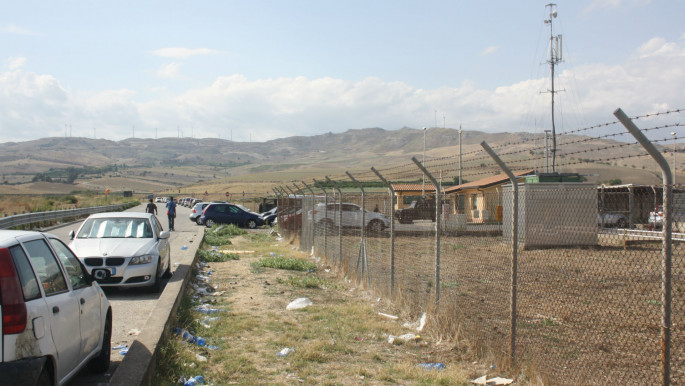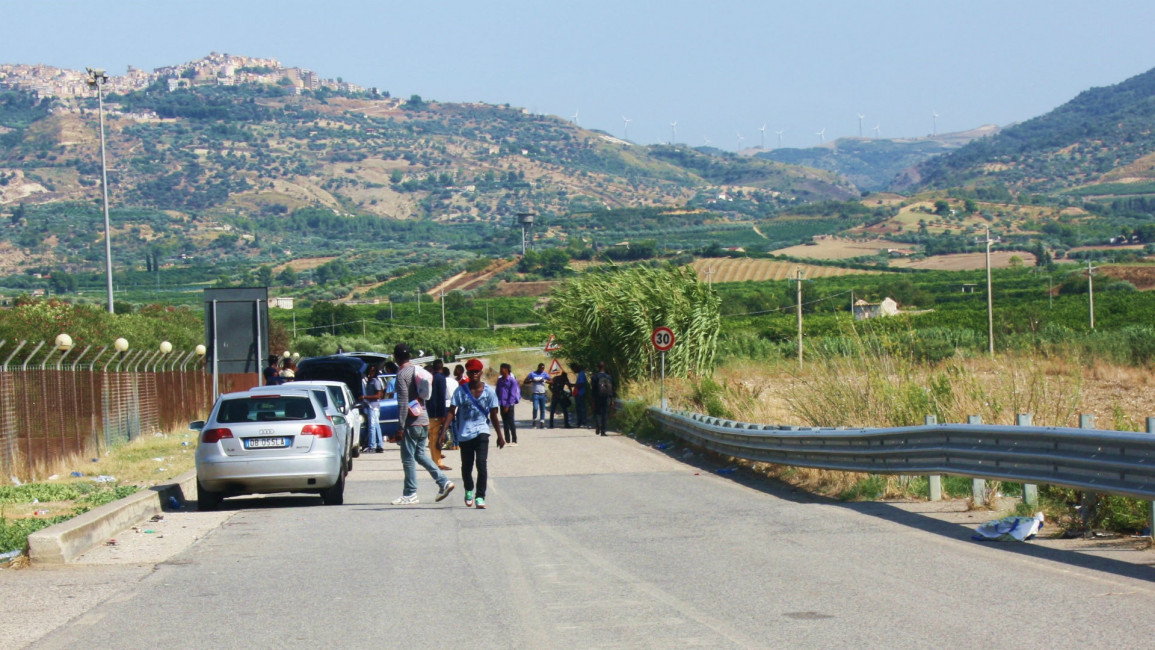
Refugee stories: 'They sent us to die at sea'
Catania, Sicily: Early in the morning we went to a street near the local train station, where several cars of African immigrants were parked.
They were abusive taxi drivers carrying refugees hosted at the CARA - a centre for asylum seekers - in Mineo. We negotiated the price of passage and got into a vehicle that soon filled up with people.
The journey to Mineo took about an hour by car, and the driver, Amin, a 42 year-old Senegalese man, told us that sometimes they were stopped by the police and fined for having too many passengers.
He has driven this taxi for three years and feels tired. There is too high a risk due to wrecked cars, and little gain.
There are also too many drivers competing for these trips to and from the CARA: about 18 cars working from morning until night.
The drivers are mainly Nigerians, Libyans and Senegalese.
The CARA, one of the largest refugee facilities in Italy, is organised in whatused to be the accommodation blocks for a US naval airbase in Sigonella - a large area in the "desert" of Catania, 10km from Mineo, shut off by barbed wire and controlled by the army and police.
Refugees enter and exit only with permits. The barbed wire and the guard post inspire us with a certain discomfort. However, the military and police officers are friendly and have good relations with the refugees. Their stay in the camp should be approximately six months - waiting to be granted asylum - but many remain here a year and a half after arriving.
There are about 3,000 asylum seekers currently at the CARA, arriving from Nigeria, Gambia, Mali, Senegal, Pakistan, Bangladesh, Ghana, Ivory Coast, Guinea Bissau, Somalia, Sierra Leone, Niger, Egypt, Eritrea and other countries - and all of them passed through or stayed for a period in Libya.
The camp consists of several houses on parallel alleys and a few other facilities - canteen, mosque and church, laboratories, offices, schools, clinics, laundry.
Everything is clean and well organised, with a team of 400 professional mediators, social workers, doctors, psychologists and lawyers among the staff.
 |
|
| The CARA centre is surrounded by barbed-wire fences [Angela Lano] |
Walking through the streets of the camp, we talked with some refugees, who told us their dramatic stories.
Jean Batiste, 22 years old, from Ivory Coast, is one of the survivors of the shipwreck which killed 800 people on April 2015.
"I travelled from Tripoli to Italy by boat. I had left my country in January 2014 to look for a decent job in Libya. I knew that there the wages were higher, but unfortunately I went to prison, arrested by armed militias," he said.
"I have suffered violence and mistreatment, they punched me in the face and smashed my teeth," she said, opening her mouth wide and showing her broken molars.
Khalifa is a 25-year-old Muslim from Gao, Mali. He arrived in Sicily with Jean Batiste, in April.
"I left Mali in 2010 and lived in Algeria until 2012, when I reached Libya and got a job," he said.
"I was there with my brother. We were fine, working for a good Libyan employer, who treated us very well. Then he was killed by an armed gang and I looked for another job, but the new boss didn't pay my salary, and when I started to complain, he handed me over to a group of criminals who exploited me: I found later that they were human traffickers.
"I ended up in prison where I was beaten often. One day we were told that there weren't enough cemeteries in Libya to bury all of us and that the sea would be our tomb.
"So they forced us to get on board a wrecked fishing boat… which sank. There were 800 people on board, but only 28 survived. I was among them, but my brother and all my friends died, drowned in the Mediterranean Sea." Khalifa burst into tears.
The ship's captain and his assistant were later arrested on charges of causing the shipwreck.
According to the United Nations, 350 Eritreans were among the victims. The rest of were native of Syria, Somalia, Sierra Leone, Mali, Gambia, Ivory Coast and Ethiopia.
It was just one among many shipwrecks that are transforming the Mediterranean Sea into a watery cemetery of humans escaping wars and misery.




